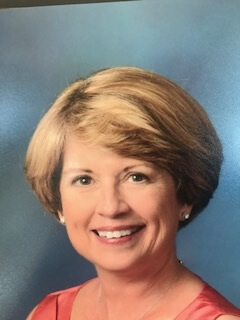
Eileene Shake, RN, DNP, NEA-BC
- Adjunct
Department: Nursing
Office: Robert E. McAllan Hall 324
Phone: 732-571-3443
Email: eshake@monmouth.edu
Eileene Shake, DNP, is a professor and national nurse consultant in Education, Practice, and Leadership. She has extensive leadership experience in both the academic and practice settings. Currently she is an adjunct professor at Monmouth University teaching in the Nursing DNP program, and is an adjunct professor in the CUNY/SPS Nursing Graduate Program. Some of Shake’s past career roles include: adjunct faculty appointment at the University of North Carolina at Chapel Hill; director and professor at the University of South Carolina; and nurse consultant with Center to Champion Nursing in America at AARP. Her past leadership roles include: strategic policy advisor in Washington, D.C., at the Center to Champion Nursing in America at AARP; CEO of the Foundation for Nursing Excellence; director of the University of South Carolina DNP in Organizational Leadership program; director of the USC Center for Nursing Leadership; director of Clinical Practice, Education, Nursing Research at Providence Hospitals; director South Park Surgery Center; and associate professor at the University of South Carolina. Shake serves on the Multiple Chronic Conditions Resource Center as an expert faculty, and is a member of the editorial board for the online Journal of Patient Care.
Shake’s current research interest area focuses on identifying the best practice clinical and didactic learning experiences for undergraduate and graduate nursing students to engage in to prepare them to meet the burgeoning health care demands of the largest segment of the adult American population. These health care demands involve managing multiple chronic diseases in the aging population. The research questions that Shake uses to guide her investigations center on five major questions with a focus on the what, where, how, who, when will nursing students be taught to care for the population with multiple chronic diseases. She is passionate about providing nursing students with learning experiences that allow them to develop their new ideas on providing quality, patient centered care, in the community or practice setting. Shake believes it is important to teach nursing students’ concepts on using best practice shared decision approaches when caring for and treating patients with chronic diseases.
Her passion to provide quality learning experiences for nursing students is evident in the topics she selected to research in her dissertation and a 2014 article she published with nursing faculty from three Universities. The title of her dissertation was “Dedicated Education Units: Do They Improve Student Satisfaction?” The 2014 article is titled, “A Systematic Review: A Collaborative Partnership on Evaluating Graduate Nursing Education in Chronic Symptomatic Disease,” and is published in the Clinical Scholar Review, Volume 7, Number 2, 2014.
Scholarly Articles
Shake, E. & Lavin, J. (2018). Benefits, challenges, and solutions in educational-practice partnerships for students’ capstone projects. International Journal of e-Education, e-Business, e-Management and e-Learning. 9;1, pg 1-8. (doi: 10.17706/ijeeee.2019.9.1. 1-8).
Shake, E, Lavin, J., & Reilly, M. (2017). Nursing faculty and RN-BSN students developing collaborative partnerships: Implementing innovative projects to create a culture of health in New York City. Innovational Journal of Nursing and Healthcare, 3, 1, 1-7.
Shake, E. (2016). Answer the call for nurses to get higher education and play key roles in transforming healthcare in the United States. Nurse.Com.
Shake H (2016). Engaging patients in healthcare choices: Using the AHRQ Shared Decision Making Approach. Journal Patient Care 2:e102. doi:10.4172/jpc.1000e102.
Shake, E.E. & White-Hurst, E.M. (2012). The South Carolina One Voice One Plan Future of Nursing Action Coalition. The Palmetto Nurse, 7(1), 12-13.
Shake, E. E. (2010). Dedicated education units: Do they improve student satisfaction? University of South Carolina. ProQuest Dissertations and Theses.
Kuebler, K., Lampley, T., Shake, E., White-Hurst, E., Taggart, H., & Hagerty, D. (2014). A systematic review: A collaborative partnership on evaluating graduate nursing education in chronic symptomatic disease. Clinical Scholars Review, 7( 2), 98-104.
Multimedia Presentations
Shake E., Reilly, M. (2015). Webinar: Leadership and Professional Development for Nurses. CUNY Webinar.
Shake, E. (2012). Reclaiming Your Voice Through Writing. University of South Carolina. Center for Nursing Leadership.
Shake, E. (2011). Enhancing Leadership Skills Through Self-awareness. University of South Carolina. Center for Nursing Leadership.
Other Scholarly Activities
As director of Nursing Research, Clinical Practice, and Education in the Institute of Learning at a major cardiovascular hospital system in the southeast; I participated in grant writing projects and taught other clinical educators how to write grants.
Developed a virtual 10 credit hour CEU course that focuses on grant writing and I have presented at the USC faculty development workshops on grant writing 101.
As an MSN student coordinated a grant between the Reynolds Foundation and the Sexual Assault Nurse Examiners Organization.
Organized team and wrote the RWJF/AARP request for application to form the SC One Voice One Plan Future of Nursing Action Coalition.
Used my strategic leadership skills to present presentations, teach, and spend time bringing leaders together to work on collaborative projects. I have been on many collaborative teams.
Awards
South Carolina Palmetto Gold Award 2011
2012 SCNA President’s Award for Outstanding Service
Community Leadership Appointments
Human Services Health Subcommittee, Charlotte, NC
Member, Appointed by Mecklenburg Board of County Commissioners 2001-2004
Goal of the subcommittee was to make recommendations to Mecklenburg Board of County Commissioners concerning county and human services in general. Subcommittee responsibilities included periodic needs assessments, budgeting, programming, and monitoring of community-based human services delivery system.
Courses
Recently Taught Classes
2023 Fall
- Translating Evidence to Clinical Practice – NU 701
2022 Fall
- Translating Evidence to Clinical Practice – NU 701
2022 Spring
- Translating Evidence to Clinical Practice – NU 701
2021 Spring
- Translating Evidence to Clinical Practice – NU 701
Frequently Taught Classes
- Translating Evidence to Clinical Practice (NU 701)
